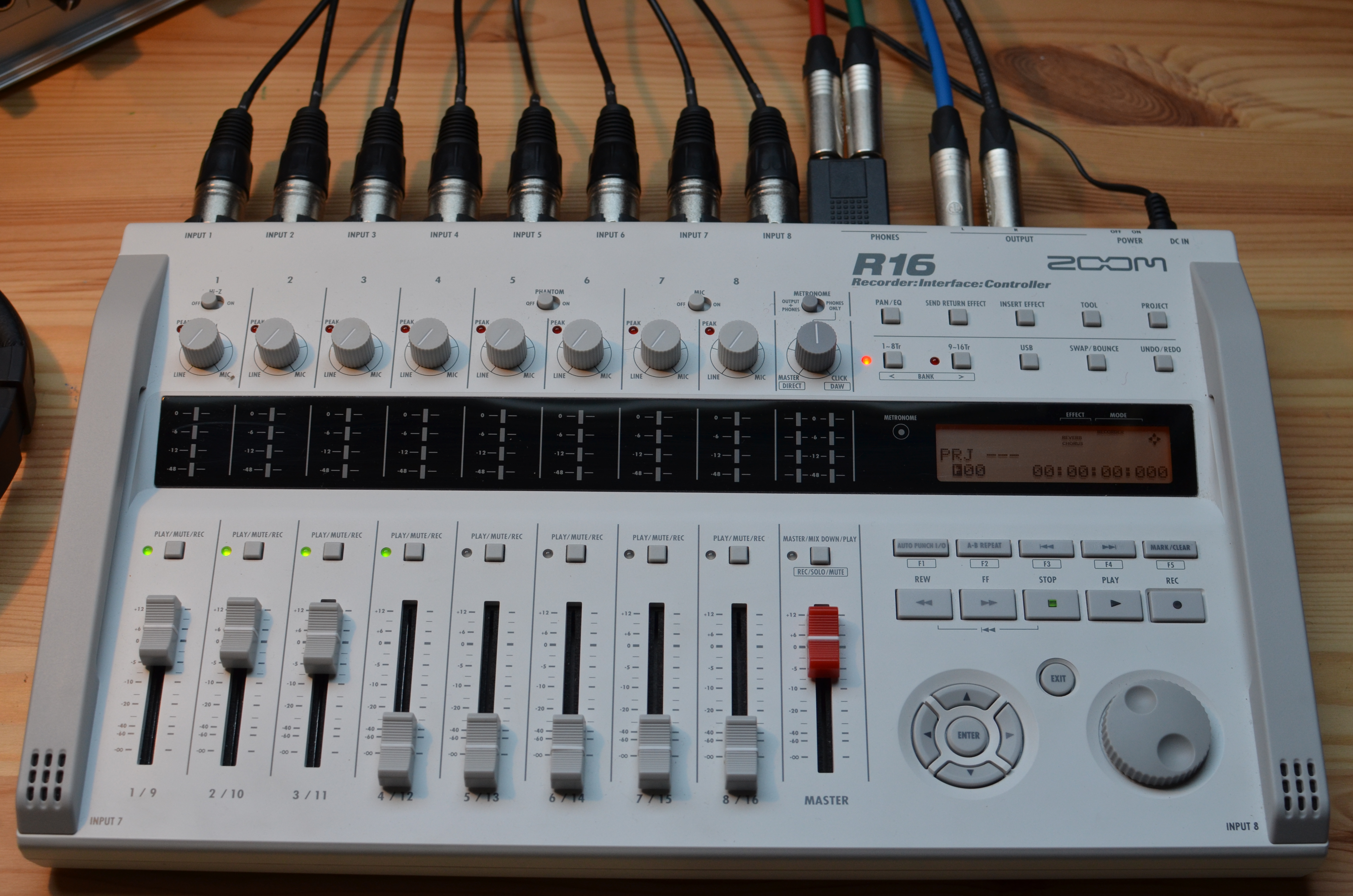jxe
babe en der wood
i need a thing to get mic and instrument sounds into a computer, but what?

I had been recording on a Zoom R16 workstation that also acts as an interface, so when I went Logic Pro I didn't have to buy anything. If you need to do multiple channels when recording that may be an option, I think there are other mfgs that make similar items.
It's worked well for me and I like the layout being a mixer board, something I feel familiar with more than the computer screen of Logic Pro, .....cause I'm old.
I gotta warn U, the R16 bypasses the effects when in "interface" mode.i actually like the idea of running instrument or effect plugins on the interface, which i think is what the apollo is about?
Yes. The original reason I bought an Apollo was so that it could process their plugins without taxing my laptop. You do have to use their plugins (some come with the unit but others can be added on ... wait for sales to buy). They have a software called Console (which is what it looks like on the screen) that comes with it which is used to record (or just monitor) in real time then sent to Live. I use Live also. I have not used a physical console to move the controls on Live, but have you tried a Push 2? The window above gives you access to all parameters of the chosen track.i actually like the idea of running instrument or effect plugins on the interface, which i think is what the apollo is about?
Zoom R16 has served me well too, and as usual I look at newer gear as well. The Zoom Livetrak L-12 looks pretty good!I had been recording on a Zoom R16 workstation that also acts as an interface, so when I went Logic Pro I didn't have to buy anything. If you need to do multiple channels when recording that may be an option, I think there are other mfgs that make similar items.
It's worked well for me and I like the layout being a mixer board, something I feel familiar with more than the computer screen of Logic Pro or those little interface units, .....cause I'm old and I need to touch faders.
If it ain't broke don't fix it.Zoom R16 has served me well too, and as usual I look at newer gear as well. The Zoom Livetrak L-12 looks pretty good!
i actually like the idea of running instrument or effect plugins on the interface, which i think is what the apollo is about?
who’s got some tracks?
thanks for that, LS -- the apollo is definitely at the top of my short list. one of the things holding me up is i know not much about microphone preamps and don't want flo and eddie to snicker at my mixing desk.
